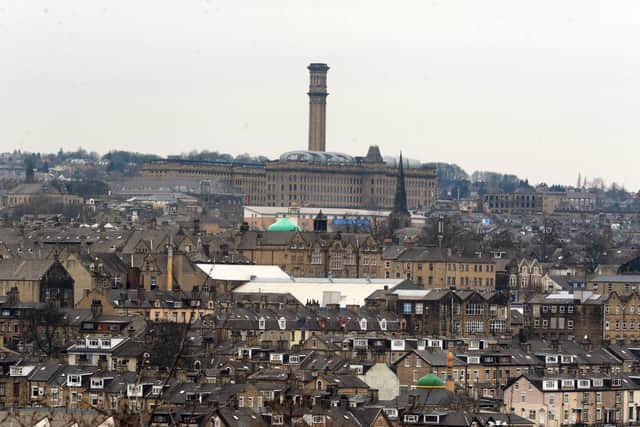Yorkshire leaders urged by think-tank IPPR to set up 'anti-rumour' campaigns to tackle fake news against migrants
A think-tank study into attitudes towards migration across Yorkshire, which interviewed hundreds of people over two years, reveals their anxiety at misconceptions and rumours that circulate about their involvement in crime, often in social or traditional media.
The research project, seen exclusively by The Yorkshire Post, says that in a post-pandemic, post-Brexit world, future debates about migration will take place "in a radically different economic and social context" to previous years.
Advertisement
Hide AdAdvertisement
Hide AdIt recommends that the tensions which exist in some communities require "a sophisticated approach that tackles misperceptions, mediates between communities, and avoids inflaming tensions".
And it suggests setting up 'anti-rumour campaigns' based on a strategy successfully developed in Barcelona and a number of other European cities.
Authors Lucy Mort and Marley Morris say: "This strategy recognises that simply negating the claims of residents or providing data and information to counter their claims is generally ineffective, and it can often be counterproductive.
"Rather than dismissing or blaming residents – which risks alienating them further – the approach seeks to win over those with ambivalent views through the promotion of alternative, positive narratives about community relations.
Advertisement
Hide AdAdvertisement
Hide Ad

"We recommend that where there is evidence of emerging ‘fake news’, neighbourhoods should adapt such an approach in response, adapting it carefully to account for the local context."
The paper was commissioned by Migration Yorkshire, a local authority-led partnership working across the Yorkshire and Humber region, in a bid to understand how ten neighbourhoods have changed and been shaped by migration.
Researchers from the Institute for Public Policy Research (IPPR) found that whilst views about migration and diversity are mixed across the region, “there is a lot to be proud of and hopeful about”.
Though individual towns and cities are not mentioned by name, they are grouped together into categories such as asylum dispersal areas, covering Barnsley, Calderdale, Doncaster, Hull, Kirklees and Wakefield, or diverse conurbation centres, such as Bradford, Leeds and Sheffield.
Advertisement
Hide AdAdvertisement
Hide AdThe report says: "Our aim has been to explore how different types of communities in cities and towns across the region understand, experience and respond to migration locally."
Among the recommendations are increasing provision for English language support for recent migrants and engaging with local employers about "the important role they can play in supporting community integration".
And the report said participants spoke about a lack of community spaces or affordable activities that could serve local residents and bring people from diverse backgrounds together.
As of last year there were around 520,000 non-UK-born people in Yorkshire and the Humber, around a tenth of the population.
Advertisement
Hide AdAdvertisement
Hide AdBradford, Sheffield and Leeds had the biggest share of non-UK born residents, who tend to come from South Asia or the 'A8' European Union member states in central and eastern Europe.
The report sets out how Yorkshire has a "long and diverse history of migration", with many people from Commonwealth countries coming to the region to help rebuild the economy and fill labour shortages after the Second World War.
It says: "Many migrants – including people from Pakistan, Bangladesh and India – found work in Yorkshire’s industries, including in textile mills in cities such as Bradford and in steelworks in South Yorkshire.
"People seeking asylum also settled in Yorkshire and the Humber – including refugees during and after the Second World War, Ugandan Asians in the 1970s, and Kosovans during the 1990s."
Advertisement
Hide AdAdvertisement
Hide AdOne man living in a 'tight-knit town' told researchers: “There were a lot of Polish and Romanian and Hungarian came here in’t ‘60s… We’ve always had migrants around us in the area… because of the collieries.
"Whereas other parts of the country that didn’t have the collieries they’ll have a different view on [migration] than us because we’ve seen it.”
The arrival of EU citizens from 2004, with migrants settling across the region in small towns as well as large cities, meant Yorkshire and the Humber’s non-UK born population increased from around 260,000 to around 460,000 between 2001 and 2011.
The report says that recent developments such as the pandemic and Yorkshire voting 58-42 to leave the European Union "pose new challenges for the region and are likely to transform future migration patterns".
Advertisement
Hide AdAdvertisement
Hide AdIt said: "According to an ONS study, residents in Yorkshire and the Humber were second only to the North East in having the greatest concerns about the impact of coronavirus on their work.
"The pandemic – combined with global restrictions on travel and the future plans to end the free movement of people – is likely to both reduce net migration and reconfigure migration patterns in the region in the coming years.
"Future policy debates on integration and inclusion in Yorkshire and the Humber are therefore set to take place in a radically different economic and social context."
Pip Tyler, Policy and Research Manager at Migration Yorkshire, said: “Each neighbourhood in Yorkshire and Humber is unique, so we need to recognise that migration is experienced within that local context.
Advertisement
Hide AdAdvertisement
Hide Ad"Of course, integration between newcomers and local residents happens every day at this street level. Different types of places could benefit from tailored approaches to integration in the future.
“The research is really timely as councils, police, employers, and the voluntary and community sector prepare for huge changes in migration that are just around the corner – and not just in Yorkshire, but across the UK.”
Comment Guidelines
National World encourages reader discussion on our stories. User feedback, insights and back-and-forth exchanges add a rich layer of context to reporting. Please review our Community Guidelines before commenting.